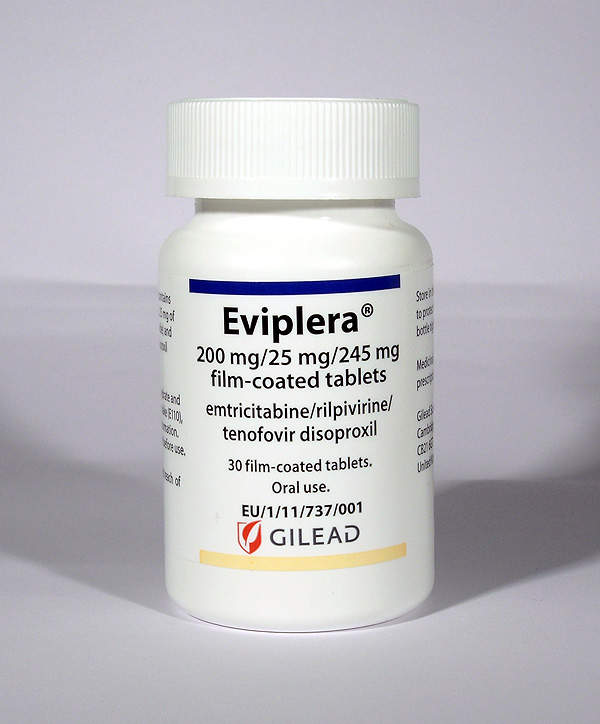Eviplera is a single-pill regimen targeted at human immunodeficiency virus-1 (HIV-1). It combines the active substances emtricitabine, rilpivirine and tenofovir disoproxil.
Developed by Gilead Sciences International in collaboration with Tibotec, eviplera is approved in the US under the trade name Complera. It was approved by the European Medicines Agency in November 2011.
What human immunodeficiency virus (HIV) does to the body
HIV is responsible for causing acquired immune deficiency syndrome (AIDS) which destroys the immune system if left untreated. There are two types of the virus – HIV-1 and HIV-2. Compared to HIV-1, immunodeficiency develops at a slower rate in HIV-2 patients.
Both types of HIV damage a person’s immune system by destroying blood cells called CD4 or T cells, which help the body fight diseases. People infected with HIV develop flu-like symptoms which remain for several days, while others may not show any symptoms at all. Although the symptoms may not be visible, HIV affects a person internally.
An estimated 34 million people across the world are currently living with HIV-1. There is no complete cure available for HIV.
Current treatment options available for HIV involve taking multiple medications, known as combination therapy. This treatment helps reduce the amount of HIV or viral load in a patient’s body.
Combination therapy earlier involved taking nearly 20 or more pills throughout the day. The treatment options, however, have improved over the years, including coformulated medicines. These treatment methods help in simplifying the dosage regimen and reduce HIV drug resistance.
Eviplera (complera), enzyme inhibiting treatment for HIV
Emtricitabine and tenofovir disoproxil are nucleoside reverse transcriptase inhibitors (NRTIs) and rilpivirine is a non-nucleoside reverse transcriptase inhibitor (NNRTI). The three active substances are available as individual medicines – Emtriva (emtricitabine), Viread (tenofovir disoproxil fumarate) and Edurant (rilpivirine).
The active substances work by inhibiting the activity of reverse transcriptase, an enzyme produced by HIV. The enzyme multiplies and infects CD4 cells. Eviplera inhibits the enzyme and reduces the level of HIV in the blood.
It enables patients to maintain HIV at low levels in the body with a viral load ≤ 100,000 HIV-1 RNA copies/ml.
Eviplera does not cure HIV infection or Aids but it helps in slowing the damage caused by the virus to the immune system. It also helps in preventing the development of infections and diseases associated with Aids.
Clinical trials on the combined / coformulated HIV single-pill regimen
Clinical testing of eviplera included two Phase IIa studies, one Phase IIb study and two pivotal Phase III studies.
Phase IIa studies were monotherapies conducted to confirm rilpivirine’s antiviral activity. One study was conducted in 47 treatment-naive patients and the second in 36 treatment experienced patients. Both studies established the efficacy of rilpivirine, based on which the Phase IIb study was conducted.
The Phase IIb study was a randomised, active controlled, partially blind trial conducted in 368 patients. Three doses of rilpivirine were administered during a 96 week period.
Both Phase III trials of eviplera were randomised, double-blind studies. The first study, C209 (ECHO), recruited 690 patients with HIV-1 and compared eviplera with Efavirenz. Results from the study indicated that 83% patients responded to eviplera treatment when compared to 84% of patients who were administered efavirenz.
The second Phase III trial, C215 (THRIVE), recruited 678 patients and compared rilpivirine with efavirenz. The results of the study showed that 87% of the patients administered with rilpivirine responded to the treatment, compared to 83% of the patients administered with efavirenz.
Marketing commentary for HIV treatments such as eviplera
Demand for single-pill antiretroviral treatments has increased over the years due their ability to control HIV and promote patient adherence. These treatments have transformed HIV / Aids into a more manageable condition for patients.
Newer single-pill treatments are also being considered as more effective. The global market for HIV drugs is expected to grow at an average of 4.5% between 2008 and 2015. Although demand is set to grow, competition from generic and cheaper versions of expensive drugs is eroding some of the profits of big pharmaceutical companies.
Gilead’s Atripla HIV drug holds nearly two-thirds share in the market. Approval of eviplera, whose patent does not expire until 2023, will further strengthen Gilead’s market position.





